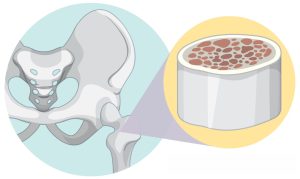The Power of a Living Will (Advance Medical Directive)
“Punarapi jananam punarapi maranam.” Life is a cycle of birth and death. Death for all of us is not a choice, its inevitable but how we face death can sometimes be a matter of choice. In India, a Living Will or Advanced Medical Directive (AMD) allows an individual to decide his/her medical treatment in advance if he/she becomes terminally ill or incapacitated. This legal document ensures that his/her wishes regarding life-sustaining treatments are respected, hence reducing emotional and ethical burdens on family members.
In this blog, we’ll explore:
- What is a Living Will?
- Legal status of it in India
- How to create one
What is a Living Will?
It is a legal document where a person specifies his/her preferences for medical treatment if they become unable to communicate due to a terminal illness, coma, or irreversible condition. It includes instructions on withholding or withdrawing life support such as:
- Cardio-pulmonary resuscitation (CPR)/ Do Not Resuscitate (DNR) orders
- Intravenous fluids and medications including antibiotics; excluding those that would provide comfort or relieve suffering/pain
- Dialysis
- Ventilation or other kinds of artificial life support
- Chemotherapy
- Radiotherapy
- Surgery, unless it is for symptom control or to improve the quality of my life
- Artificial administration of nutrition and hydration
- Palliative care preferences
- Unlike a traditional will (which deals with property after death), a Living Will applies while the person is alive but incapacitated.
Legality of a Living Will. Is a Living Will legal?
Yes! The Supreme Court of India, in its landmark March 2018 judgment (Common Cause vs. Union of India), recognized the Right to Die with Dignity under Article 21 (Right to Life) of the Constitution. The court laid down guidelines for creating and enforcing Living Wills.
Legal Conditions:
- Appoints a guardian or surrogate decision-maker.
- Must be made voluntarily by a person of sound mind.
- Requires witnesses and a notary attestation.
- Can be revoked or modified anytime.
- Comes into effect only when the person is terminally ill/incapacitated with no hope of recovery.
How to create a Living Will in India?
Step 1: Draft the Document
The Living Will should clearly state:
- Your name, age, and address
- A declaration that you are of sound mind
- Specific medical conditions where it should apply (e.g., irreversible coma, terminal illness)
- Instructions on life support, pain management, and organ donation (if any)
- Instructions on desires of EOLC, Choice of place of treatment, choice of treating physician.
- Appointment of healthcare proxy or power of attorney for heath related decisions.
- Directions to be followed upon death about organ donation, cadaver donation and wishes pertaining to last rites.
Step 2: Sign in the Presence of Witnesses
- Two witnesses (unrelated, not beneficiaries) must sign.
- A notary public or gazetted officer must attest it.
Step 3: Submit to the Hospital & Family. Give copies to:
- Your family doctor/hospital
- Close family members
- Your legal heir or healthcare proxy
- Your concerned Municipal office for documentation purposes
Step 4: Review & Update Periodically
- You can modify or revoke it anytime by submitting a fresh document.
Step 5: Activation
- If the executor becomes terminally ill/incapacitated, the hospital ethics committee reviews the Living Will.
- A medical board evaluates the condition.
- Hospital EOLC (End of Life Committee) approval is required before withholding /withdrawing treatment.
In conclusion, A Living Will ensures that a person’s medical choices are honored, sparing their loved ones from painful decisions. With legal recognition in India, it’s a powerful tool for dignified end-of-life care. If you believe in self-determination, consider drafting one today.
Have questions about creating a Living Will? Drop them in the comments! Feel free to contact;
Dr Karthavya S L;
Consultant- Critical care and Palliative care Medicine.














